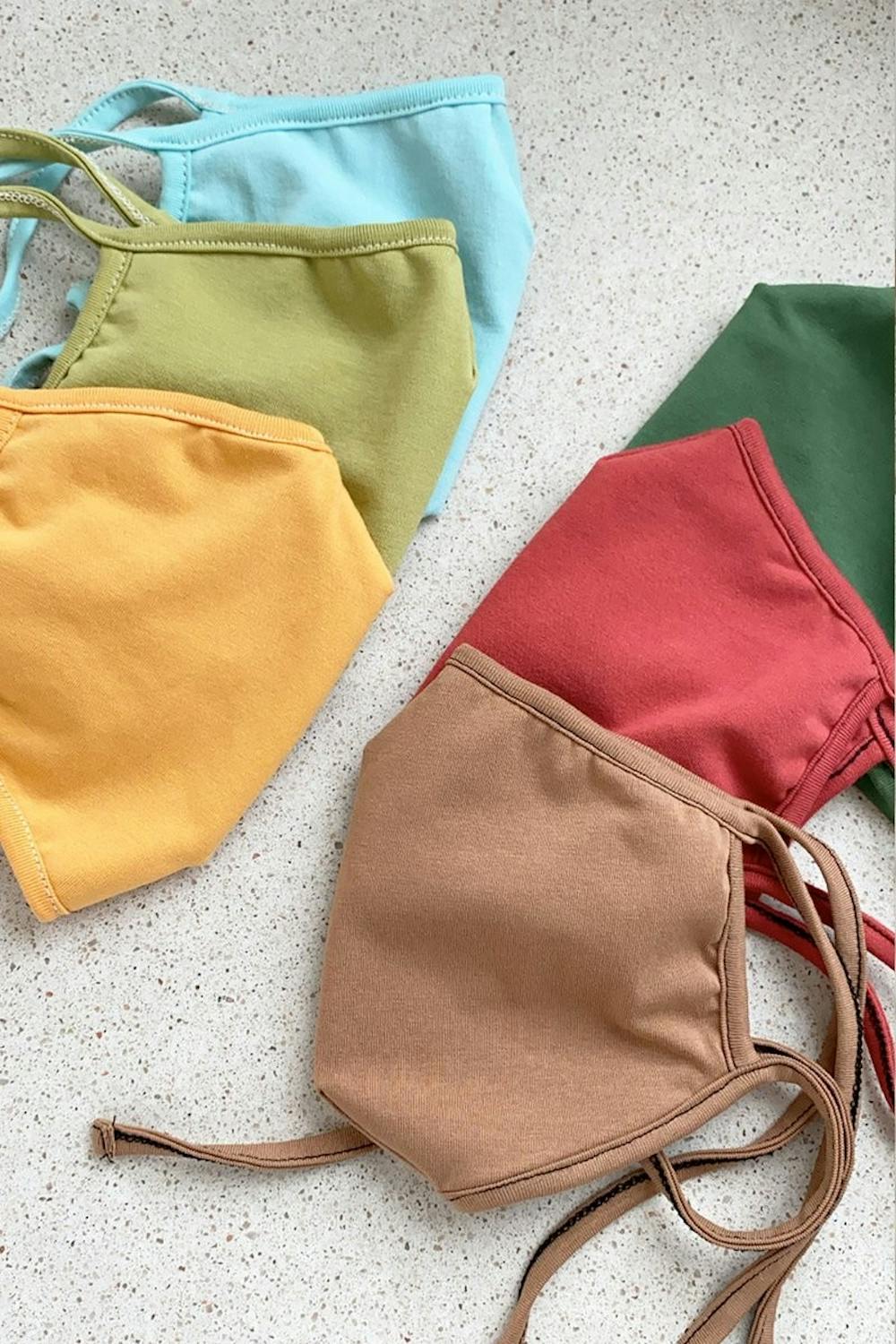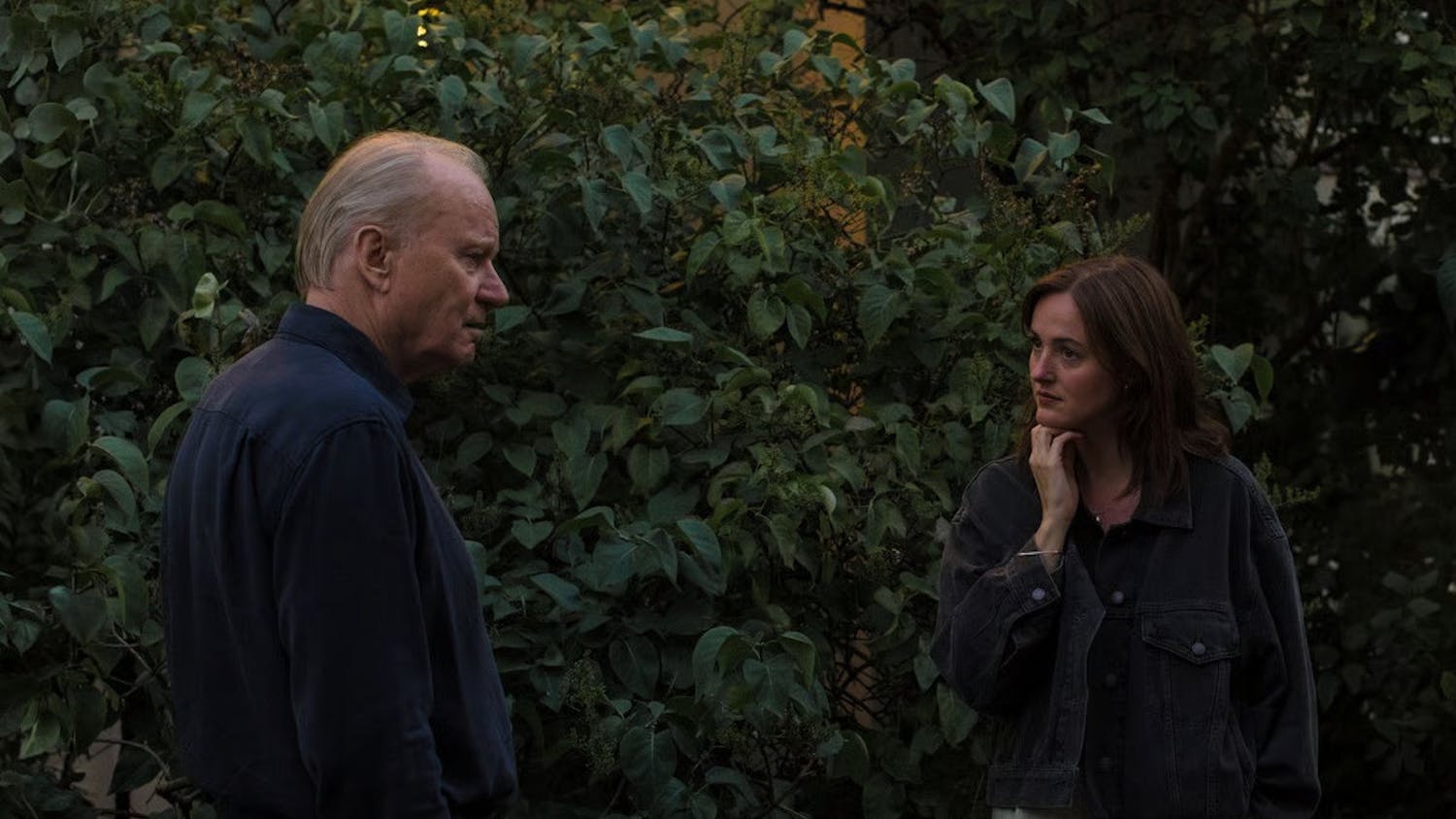The first week of July was designated as National Blackout Week, a movement aimed at standing in economic solidarity with BIPOC, or Black, Indigenous and people of Color. During the week, BIPOC, and Black people in particular, were encouraged to only buy from Black-owned businesses. AU rising senior Edmée Faal, who was promoting the Blackout on her Instagram, said in a post, “The Economic Blackout is a movement intending to uplift Black people by moving spending power away from big businesses and corporations to BIPOC-owned businesses and small owned businesses.” Below are 10 sustainable and ethical BIPOC-owned businesses for purchases like food, hair care and accessories. Even though the week ended, we can continue shifting our purchases to BIPOC-owned businesses.
- Pipcorn
Products: Corn snacks
Ethics & Sustainability: Sustainable agriculture, B Corporation and non-GMO
Best Pick: Vegan Caramel Pipcorn
Created by brother and sister duo Jen and Jeff Martin, Pipcorn is a gourmet popcorn snack made from an ancient variety of corn. Uniquely, each pipcorn is about half the size of a traditional popcorn kernel. This addictive snack comes in flavors like sea salt, truffle, caramel and more. Since its successful appearance on the television show “Shark Tank,” the brand has also created some fun additions to its product line, including cheese balls and corn dippers made from the same ancient heirloom corn variety. In terms of sustainability, Pipcorn says that using heirlooms helps protect the genetic diversity of our food because they are open-pollinated, a process where seeds are fertilized by bees, butterflies or other pollinators. The seed that forms produces the same plant the following year. There is growing momentum around the ecological and health benefits of the open-pollination process. Additionally, the company reduces waste by saving seeds from each harvest to plant “next time around,” and redirects leftover corn flour from the production of their cheese balls into their cracker products. Pipsnacks is “proud to be a women-owned, minority-owned, family business,” said the company.
- Briogeo
Products: Hair Care
Ethics & Sustainability: Ethically sourced, naturally derived, sourced without sulfates, silicones, parabens, phthalates, DEA or artificial dyes.
Best Pick: Deep Conditioning Hair Mask
Briogeo founder Nancy Twine began experimenting with natural homemade hair products when visiting her grandmother at 5-years-old. Some 20 years later, Nancy used her “grandmother’s coveted beauty recipes and a rockstar natural chemist team” to create a natural, yet performance-driven haircare company. Briogeo hair products are award-winning. They use a proprietary blend of natural oils, vitamins and antioxidants as the basis for every product formula and are formulated without the hundreds of toxic ingredients found in many hair products that saturate the market. Harmful ingredients, found in conventional beauty products, pose health risks to both people and the planet. While Briogeo currently does not provide information on sustainable packaging measures, its dedication to clean beauty helps avoid water contamination, as well as habitat and species disruption.
- BLK+GRN
Products: Beauty, Grocery and Home
Ethics & Sustainability: Non-toxic, plant based, cruelty free and implements post-consumer waste paper into their packaging mix
Best Pick: Black Girl Sunscreen
BLK+GRN is an all-natural marketplace, created by Black artisans, that sells a range of health, wellness and lifestyle products. BLK+GRN founder Dr. Kristian said that her mission is to “connect Black women to the tools, resources, knowledge and products they need to lead happier and healthier lives.” Every product is carefully analyzed and curated to meet quality standards of ingredient purity and product efficacy. As a result, every item sold is sustainably made, plant-based, cruelty free and adheres to its policy avoiding ingredients on the Environmental Working Group’s “Toxic Twenty List.”
- Back Beat Co.
Products: Clothing, beauty, accessories and masks
Ethics & Sustainability: Low impact fabrics, sustainable packaging, plastic free, ethical sourcing and manufacturing
Best Pick: Organic Cotton Masks
The brainchild of a Filipina immigrant, Isadora Alvarez, Back Beat Co. is a sustainable lifestyle and clothing brand that draws its inspiration from “old school California surf n’ skate culture” combined with “what’s currently going on in the streets.” The result is easy, wearable, vintage-inspired clothing reworked in a fresh and modern way. A disproportionate amount of clothing’s impact on climate happens at the raw material stage. Rather than using environmentally harmful synthetic materials, Back Beat Co. opts for sustainability all-stars like organic cotton, recycled cotton, hemp and Tencel. The company has developed close relationships with the factories that manufacture its clothes in order to ensure ethical treatment of garment makers. Furthermore, 90 percent of its knit fabrics are still sewn in Los Angeles, which greatly diminishes the carbon footprint of shipping these products from overseas.
- Bôhten Eyewear
Products: Glasses (eye, sun and blue light)
Ethics & Sustainability: Upcycled materials ethically sourced from West Africa
Best Pick: Jetter Classic-X Walnut Glasses
Drawing inspiration from Ghana’s beautiful landscapes, Nana Boateng Osei started Bôhten Eyewear with the vision of infusing nature, style and Africa into an eyewear company. Bôhten Eyewear products are made using reclaimed materials – especially wood – sourced from West Africa. Central to the heart of the company, lies the question: “What if world-class, sustainable and stylish eyewear was made in Africa?” Bôhten Eyewear continues to work towards the goal of full manufacturing in Ghana in the next five years. As part of its larger COVID-19 relief effort, for every frame purchased, Bôhten Eyewear donates five masks to a homeless shelter in Toronto.
- Wasi Clothing
Products: Clothing, totes, prints, mugs, cards and stickers
Ethics & Sustainability: Locally and ethically sourced textiles, created in accordance with slow fashion principles
Best Pick: Ally For All Tee
Wasi Clothing is a one-woman-run sustainable and ethical business founded by Bolivian-American designer Vanessa Acosta, whose goal is to put “Bolivian culture on the map.” Some of the textiles are personally sourced from South America and others are locally sourced in the United States. Acosta envisions Wasi Clothing as a company for everyone: “for all sizes, for all colors, for all ethnicities [and] for all genders.” All products are made to order – designed and sewed by Acosta in her studio. Her aguayo garments are made in limited quantities to maintain a slow-fashion formula that is conscious about its environmental impact. Fifty percent of proceeds, from select products, go to people arrested and injured during recent protests, as well as the People’s City Council Freedom Fund. In addition to beautiful prints on Wasi Clothing’s range of products, the company also allows people to shop and wear its values with quotes like “Ally For All,” “Ya Basta,” “Rally To End Police Brutality” and more.
- Enbois
Products: Bags, beaded jewelry, watches, t-shirts and phone cases
Ethics & Sustainability: One tree planted for every product sold, supports local reforestation efforts and uses natural materials.
Best Pick: Ebony Bracelets
Enbois, pronounced “en-bwa,” which means wooden, was born in founder Maxim Thuriere’s college dorm room at the University of South Florida. After his products started gaining popularity, Thuriere decided to sell his wooden jewelry products for a greater purpose. He looked to an organization he previously worked with, the Haitian Resource Development Foundation, and helped fund a project that improves education and distance learning programs in rural areas of Haiti. After finishing the project, Thuriere was introduced to “the world of reforestation” and knew the cause was a perfect fit for his company. Now, each Enbois product sold plants one tree and contributes to reforestation efforts across the Caribbean. The company recognizes that planting trees is only half the battle, which is why it also donates proceeds to partner organizations that help local leaders engage and educate communities on the importance of environmental conservation through reforestation. Enbois sells bags, beaded jewelry, watches, t-shirts and phone cases made from natural, renewable and non-toxic materials.
- Lit Soul Candles
Products: Candles and t-shirts
Ethics & Sustainability: Upcycled cans, natural and non-toxic ingredients and donation program to individuals experiencing homelessness.
Best Pick: Heart Felt Candle for your heart chakra.
Lit Soul Candles founder, Monica Rae, turned to meditation in hopes of healing from tough situations in her life. After experiencing the transformative effects of her daily practice, Rae became determined to encourage others to “indulge in daily quiet time.” Shortly after, she launched Lit Soul Candles: natural, phthalate-free, slow-burning candles housed in upcycled soup cans. The contents from these cans are used to make homemade meals for individuals experiencing homelessness in Los Angeles. Each candle is “chakra specific” and contains a “high vibration crystal” at its base. Once the candle burns out, you’ll have a crystal to place on your corresponding chakra during meditation ... or a nice piece of windowsill decor.
- Grant Blvd
Products: Clothing, masks, scrunchies and totes
Ethics & Sustainability: Upcycled materials, made in the United States, and emphasis on hiring returning citizens, immigrants and those working through homelessness.
Best Pick: Lorraine Blouse With Matching Mask
Kimberly McGlonn named her company after the street she grew up on, where she first searched for solutions to poverty through action. McGlonn’s mother would use her weekends to drive to a correctional facility to offer emotional support to female inmates, and McGlonn’s father would engage in community food activism. She said that Grant Blvd is the place where she learned the power of acting with love and of speaking out against inequity. “We need to completely reimagine our response to poverty and the criminalization of it, and we also have to radically change how we create pathways to self-sufficient living for black & brown people who’ve been incarcerated,” McGlonn said. Grant Blvd, the company, uses fashion to create employment opportunities and enhance the skills we all need in order to find long term peace. The company is committed to designing “radically inclusive pathways” that progress our collective good, including the good of our planet. In alignment with its commitment to sustainability, all products are made using reclaimed fabrics to avoid new waste, conserve water and avoid chemicals. Rather than source internationally, all products are designed, cut and sewn in Philadelphia, which limits shipping emissions. Grant Blvd makes unique, fashionable clothing pieces, in addition to activist slogan shirts and sweatshirts with phrases such as, “End Cash Bail,” “End Mass Incarceration” and “Books Not Bars.”
- BLK MKT Vintage
Products: Books, vinyl records, clothing, art, decor, furniture and other goods
Ethics & Sustainability: Vintage and pre-used goods.
Best Pick: Vintage Black + White Portrait Postcard/Small Print
BLK MKT Vintage is a Brooklyn-based collection comprised of “black collectibles, cast-offs and curiosities, representing the richness of Black history and the lived experience.” As a result of the coronavirus, the company has temporarily closed its brick-and-mortar store, but is still open for online orders. The collection includes vintage literature, vinyl records, clothing, art, decor, furniture and a treasure trove of other goods. The company says, “By centering black cultural artifacts via thoughtful curation and varying modes of accessibility, we’re communicating very explicitly to black folks that 'not only do we see you, but we love you as well. You’re worthy. What you’ve created is worthy. You are important here.'” The celebration of antiquity and artifacts give objects new life, without the climatic impact of creating new goods.





